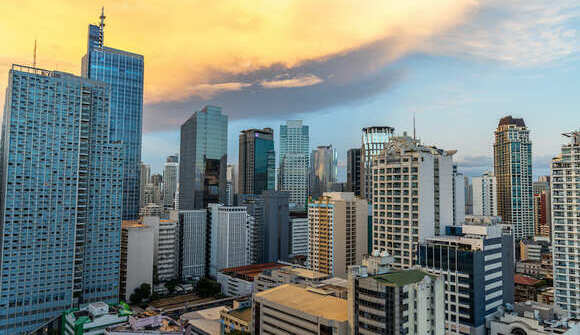
POGO Ban Linked to Dip in Office Occupancy in Metro Manila
The vacancy rate for prime and grade A office spaces in Metro Manila decreased to 15.2% in the second quarter of 2024, according to global real estate firm Cushman & Wakefield. This marks a 1.3 percentage point improvement from the previous quarter’s 16.5% and a 1.7 percentage point decrease from the same period last year.
The Cushman & Wakefield (CWK) report also revealed that 113,000 square meters of new office space were added to the market, increasing the total stock to 9.65 million square meters. Net absorption for the quarter was approximately 203,000 square meters.
Tetet Castro, Director and Head of the Tenant Advisory Group at CWK, commented on the impact of the Philippine Offshore Gaming Operators (POGO) ban on Metro Manila’s commercial real estate market. Castro highlighted that the vacancy rates will continue to be elevated in the medium term due to a significant volume of new developments, delays in legislative changes related to the CREATE Bill, and the ongoing POGO ban. However, she projects that rental rates, especially in major central business districts, are expected to remain stable.
Castro was cited by the Philippine Star as saying: “Metro Manila’s commercial real estate market remains in the recovery phase in the second quarter. The overall vacancy rate decreased to 15.40 percent from the reported rate of 16.5 percent in the previous quarter. On the other hand, the average asking rent remains steady at P1,010 per sqm per month as high market and building vacancies prevail.
“Overall vacancy rates will remain elevated in the medium term due to the huge volume of upcoming developments, delayed passing of amendments to the CREATE Bill and the pronounced total ban on Philippine Offshore Gaming Operators (POGOs) from the country. Nonetheless, headline rents of developments, particularly in the major CBDs, will remain unchanged.”
IT-BPM companies are increasingly seeking office spaces in Tier 2 locations to tap into regional talent pools and reduce operational costs. New entrants still prefer Metro Manila for their initial offices, but existing firms are expanding into Tier 2 areas. Serviced offices are gaining popularity due to their flexibility and lack of capital expenditure requirements, making them an attractive option for both new and established companies.
Claro Cordero, Director and Head of Research, Consulting, and Advisory Services at CWK, remarked, “Until the directive to completely ban offshore gaming operations in the country by the end of 2024 has been made official, the establishment of internet gaming licensees is seen to provide a reprieve to the current market uncertainties created by the policy pronouncement. In the long term, the complete banning of offshore gaming operations will add further downward pressure on rents due to the elevated office market vacancy rate.”
In the residential sector, price growth has slowed. Investor caution, coupled with the rise in the cost of living and hybrid work trends, is impacting the retail space market. Cordero noted a significant reduction in new retail space supply, with only 177,000 square meters expected this year, compared to 443,333 square meters last year.
Cordero also pointed to the growth of the cold storage industry driven by urban decentralization and increased online grocery shopping. Despite its expansion, the industry faces challenges such as high power costs and the need for advanced digital infrastructure.
CWK anticipates that gross rental yields in Manila will continue to rise in the near term, despite recent economic challenges.
Cordero pointed out: “Despite the Philippine peso being the worst-performing currency and headline inflation spiking toward the tail end of the second quarter, the off-cycle reduction in short-term interest rates by the BSP will positively impact demand growth for key property segments in the Philippine property market. The decrease in key policy rates will foster more positive forward-looking expectations of more significant reductions and set a more positive investor mindset, allowing more unlocked investment deals in the medium term.”
Read related article: POGO Ban to Hit Philippines’ Property Sector, Experts Say
Other Interesting Articles
 How Visa Revocation Affects POGO Workers and Their Exit from the Philippines
How Visa Revocation Affects POGO Workers and Their Exit from the PhilippinesSep 4, 2024











